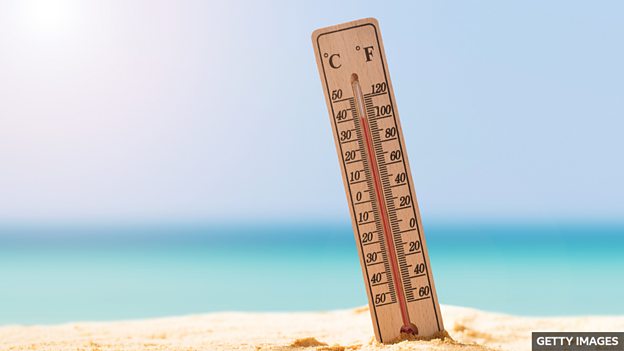你问我答
If 从句的句型结构和时态规则

内容简介
一位听众来信向我们提问:由 “if” 引导的从句应该用什么时态?这要视情况而定:在决定用什么时态时,除了要考虑由 “if” 引导的条件从句中所描述的事件何时发生以外,还要根据事件发生可能性的大小以及是否属实做出判断。听节目中主持人 Phil 和佳莹通过分析例句讲解 “if” 从句的时态。
欢迎你加入并和我们一起讨论英语学习的方方面面。请通过微博 “BBC英语教学” 或邮件与我们取得联系。我们的邮箱地址是 questions.chinaelt@bbc.co.uk
文字稿
(关于台词的备注: 请注意这不是广播节目的逐字稿件。本文稿可能没有体现录制、编辑过程中对节目做出的改变。)
Phil
Hi, and welcome to Question and Answer of the Week. I'm Phil.
Jiaying
And I'm Jiaying. 本期 “你问我答” 节目要回答的问题来自一位网友。问题由我来代读:
Question
你好,我想问一下 “if” 引导的主从句时态分别是什么,谢谢!
Phil
That's a fantastic question, and like many fantastic questions, the answer is… it depends.
Jiaying
是的,“if” 从句用什么时态要视情况而定。我们可以用 “if” 从句来谈论一些特定的内容,所以句子的时态要用哪个,取决于所表达的内容是什么。
Phil
OK, we can use present tenses in the if clause, but often when we do this, we're actually referring to the future. And this might be when we're not 100% sure what's going to happen.
Jiaying
“If” 从句可以是现在时,但谈论的其实是未来将要发生的事情,这可能是因为我们对将要发生的事情没有百分百的把握。先来看第一种情况:主句和从句都是一般现在时。听两个例句。
Examples
If you go to the shops, could you buy some bread?
(如果你去商店的话,能买些面包吗?)
If you're in the office tomorrow, can you do me a favour?
(如果你明天在办公室的话,能不能帮我个忙?)
Jiaying
在上面的两句话中,主句和 “if” 从句都是一般现在时。说话人不确定对方会不会去商店或办公室,所以两句话都用了一般现在时来指未来可能会发生的事情。
Phil
We often use if clauses like this to talk about conditions. We have a present tense in the if clause with a will future in the main clause. Here, it's saying that we need the thing in the if clause to happen first, before the thing in the main clause can happen.
Jiaying
是的,我们常用一般现在时的 “if” 从句谈论条件。
接着来看第二种情况:“if” 从句为一般现在时,主句为包含 “will” 的一般将来时。只有 “if” 从句描述的事情发生,主句描述的事情才会发生。听两个例句。
Examples
If we finish work on time, we'll go to the park.
(如果我们按时完成工作,我们就去公园。)
If you buy the ingredients, I'll cook dinner.
(如果你买食材,我就做饭。)
Phil
Tenses and time are not always the same thing. I need to mention here, that when we're using the present tense with 'if', we're also saying that the condition is not something that's very unlikely – these are things that we genuinely think could happen.
Jiaying
我们再来看第三个情况:“if” 从句仍然是一般现在时,但主句中使用情态动词,而非将来时。当然,使用情态动词会影响我们如何看待主句中描述的事情发生的可能性。听两个例句。
Examples
If you have enough money, we can eat out!
(如果你钱够的话,我们就可以出去吃饭!)
If it's sunny, we might go to the beach.
(如果天气晴朗,我们也许会去海滩。)
Jiaying
在上面的第一个例句中,如果 “if” 从句所描述的事情发生,也就是 “have enough money(有足够的钱)”,那么主句中 “去吃饭” 的计划则 “can(可以)” 实现。在第二个例句中,如果 “if” 从句中描述的事情发生,“it's sunny(天气晴朗)”,那么主句中 “去海滩” 的计划 “might(也许会)” 发生。另外,由于设下的条件并非完全没有可能实现,所以 “if” 从句用了一般现在时。
Phil
So, those are examples of using a present tense in the if clause, but we can use other tenses – and this is often for things that we think are unlikely or even impossible.
Jiaying
以上我们介绍了 “if” 从句是一般现在时的三个情况。接下来,看看 “if” 从句为其它时态的情况。这类句子通常用来谈论我们认为不大可能发生或完全不可能发生的事情。先来听两个例句。
Examples
If I were taller, I'd never find clothes to fit.
(如果我再高一点,我就找不到合身的衣服了。)
If I were younger, I wouldn't do this job.
(如果我年轻一点,我就不会做这份工作了。)
Jiaying
例句中的 “if” 从句所描述的事情都与事实不符,因为说话人不能变高或变年轻。注意,“if” 从句虽然是一般过去时,但谈论的并不是过去发生的事情,使用一般过去时的原因是这些陈述与事实相悖。我们通常在这类 “if” 从句中用 “were”,在主句中用 “would”,以表假设。
在上面的例句中,这类结构用来谈论与事实不一致的情况,但其实它还有不同的用法。它还可以让语气听起来更委婉礼貌。听两个例句。
Examples
It would be really nice if you came for dinner!
(如果你能来吃晚饭,就再好不过了!)
I'm not sure about this presentation. It would be better if you changed it a bit.
(我不确定这份演示报告是否可行。如果你能稍作修改就好了。)
Jiaying
在这两句话中,虽然 “if” 从句也用了一般过去时,且主句中使用了 “would”,但两句话都是用 “would” 来让语气更委婉、更礼貌。
Phil
Another way to use a past tense in an if clause is to use the past perfect. We can often do this, together with 'would have' in the main clause in order to talk about something that was possible before, but isn't anymore.
Jiaying
没错,“if” 从句除了可以是一般过去时以外,还可以是过去完成时,也就是 “if + 主语 + had + 过去分词”,主句则使用 “would have + 过去分词”,常用来谈论一件原本可能发生,但事到如今却不可能发生的情况。
Examples
If I had been on time for the bus, I would have come.
(如果我当时准时赶上公共汽车,我就来了。)
If you had come, you would have really enjoyed yourself.
(如果你来了,你会玩得很开心。)
Jiaying
在这两句话中,说话人对过去没有发生的事情做了假设,因此 “if” 从句用了过去完成时。
Phil
So, there are different tenses we can use with if clauses – depending on what we want to say.
Jiaying
但要牢记的是:“if” 从句的时态并不一定与事情实际发生的时间有关。
Phil
If we use present tenses, we're often talking about the future.
Jiaying
没错,“if” 从句如果用的是现在时态,那多谈论将来发生的事情;“if” 从句用的是过去时,说话人更多地是在谈论与事实不符的情况,或让语气听起来更委婉。这与事情发生的实际时间并无太大关系。
Phil
We hope that's answered your question!
Jiaying
好了,如果你也在学习英语时遇到了疑问,欢迎你通过微博把问题发送给我们,你也可以将问题发送至:questions.chinaelt@bbc.co.uk
谢谢收听 “你问我答”。Bye, everyone!
Phil
Bye!



